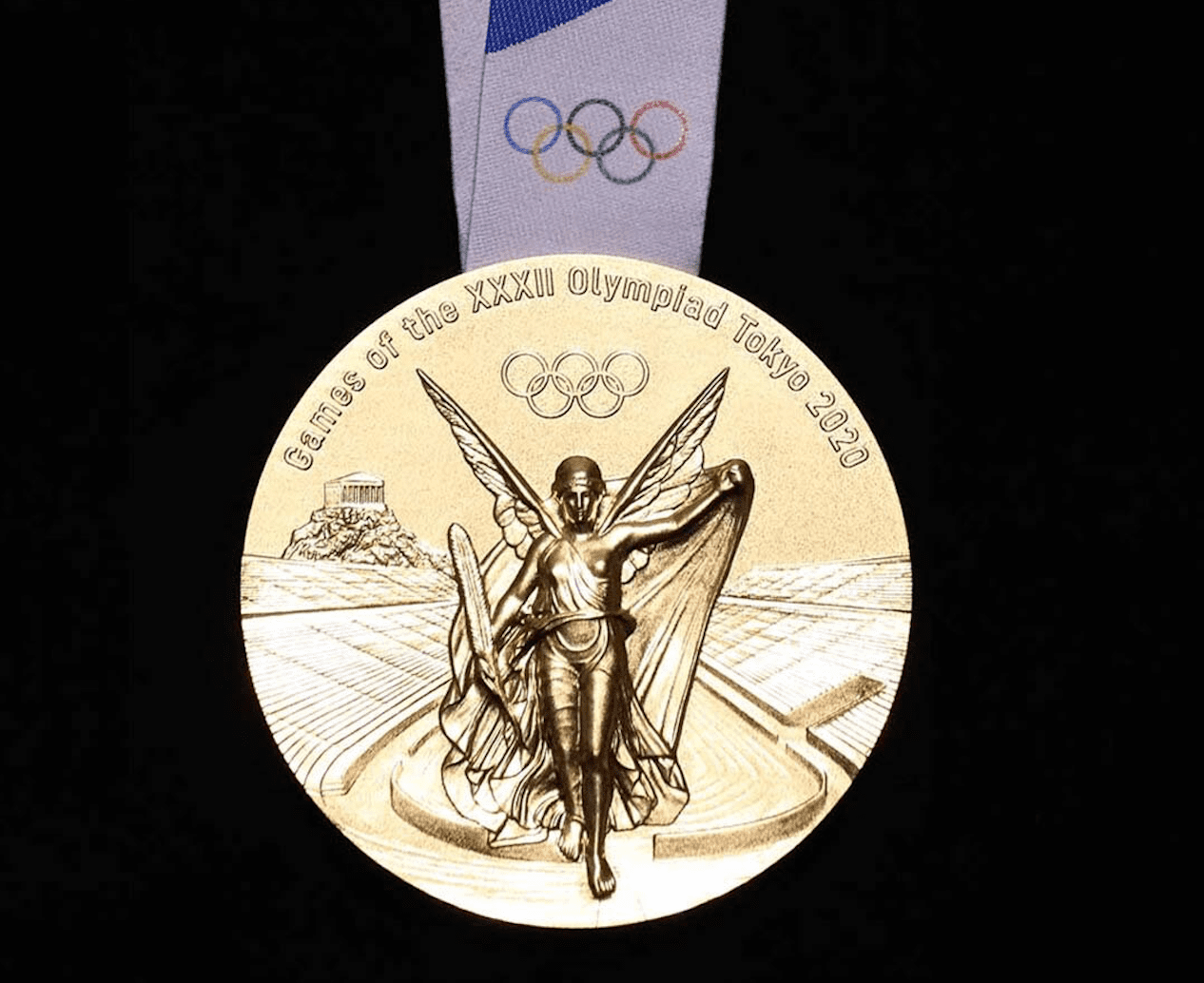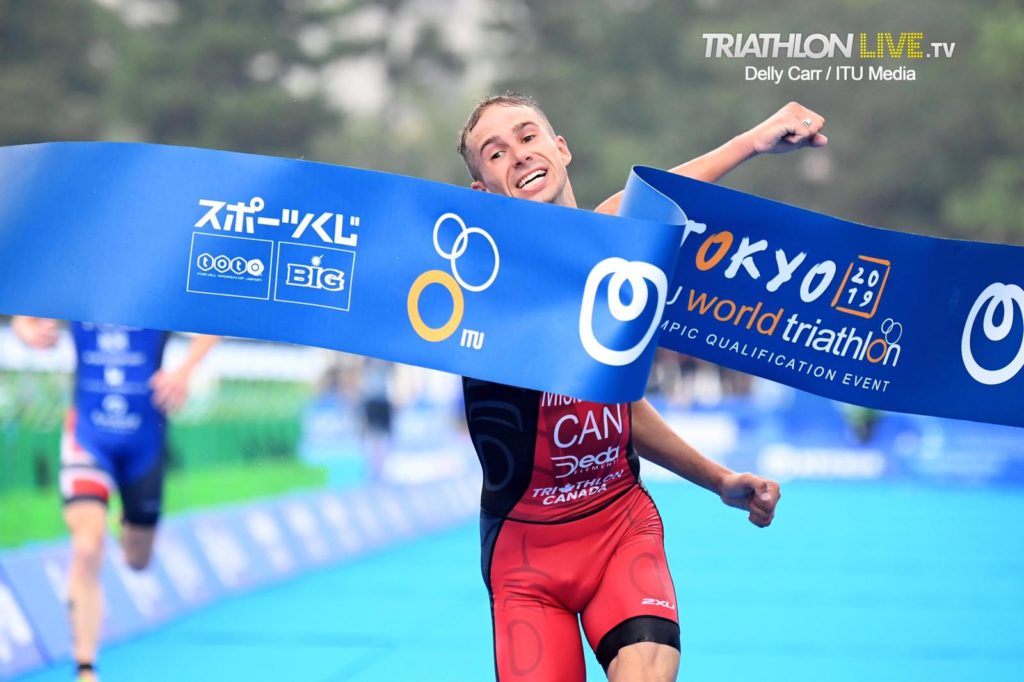Updated: Triathlon Canada fires back at World Triathlon for “interference” in Olympic nominations
World Triathlon Athlete Committee's statement encourages federations to let athletes decide on what events they will participate in at the Tokyo Games

With the Olympics in Tokyo featuring the Mixed Team Relay for the first time, it appears that the World Triathlon Athlete Committee is worried that countries will pull their athletes out of the individual race in order to keep them fresh for the relay. Yesterday World Triathlon posted a statement on its site from the Athlete Committee that seems to address that concern.
“In previous Olympic Games, when a NOC (National Olympic Committee) decided not to use a quota place, that slot rolled down to the next NOC on the ranking, ensuring a full start list,” the Committee wrote. “In this situation, because there are two events, to qualify doesn’t mean necessarily to compete in both events. Should a NOC decide not to race an athlete in the individual race, allowing him/her to only race the Mixed Team Relay, he/she would still be using the same quota place. This means the start line of the individual race at the Olympic Games would not be full because the spot cannot roll down to any other athlete.”
“While there is no direct rule in place obliging athletes to race, as an Athlete’s Committee, we strongly encourage the NFs (National Federations) and NOCs to let the athletes decide if they want to compete in both the individual and Mixed Team Relay events,” the statement continued.
Triathlon Canada’s latest nomination policy, which was posted on March 16, 2021, states that athletes will only be eligible for the Mixed Relay event in Tokyo unless: Canada doesn’t have a Mixed Relay Team at the Olympics; an athlete had achieved a top-seven finish at a 2021 World Triathlon Championship Series event or extremely competitive World Triathlon Cup Event; or an athlete had finished in the top five at the Tokyo Test Event. Since Tyler Mislawchuk won that race, he appears eligible to compete in the individual event in Tokyo. Since he’s also in the top 15 in the World Triathlon individual rankings, that means that either Matthew Sharpe or Alexis Lepage, the other two Canadian men who appear to be eligible to race in Tokyo, would also compete in the individual race in order to help Mislawchuk in the race, following the “Domestique Strategy” outlined in the Triathlon Canada nomination policy.
We reached out to Triathlon Canada for comment on the statement from the World Triathlon Athletic Committee.
“Triathlon Canada looks forward to announcing all of our athlete nominations to Team Canada in partnership with the Canadian Olympic Committee on July 7,” Kim Van Bruggen, Triathlon Canada CEO said. “However, we find it very concerning that World Triathlon is seeking to interfere in the nomination process indicated in a national federation’s internal selection criteria that has been set well in advance of the Olympic qualification period.”

We reached out for comment from World Triathlon, who provided this response to Van Bruggen’s statement:
“World Triathlon fully acknowledges and respects the role of the National Olympic Committees and the National Federations in the role of selecting their National team. World Triathlon as an organisation is not interfering in these internal processes neither for the Olympic Games nor for any other Major Games or World Triathlon events. The voice of the athletes is and has always been very important for World Triathlon. Our open and transparent communication to our members and external stakeholders allows our Athletes Committee to express its voice freely. The Athletes Committee is solely elected by the elite and para athletes, therefore they are considered acting as an independent body within our organisation without any interference from the management.”
It’s been difficult for both athletes and federations to navigate the selection process for this year’s Games. Olympic qualification was “paused” for more than a year due to the COVID-19 pandemic, and federations like Triathlon Canada had to come up with qualification criteria that was fair and also took into consideration the challenges of travelling to events during the pandemic. In May Canada seemed to be giving up on the opportunity to compete in the Mixed Team Relay in Tokyo when it didn’t field its strongest team at the World Triathlon Mixed Relay Qualification Event in Portugal. For the race in Lisbon athletes like Matthew Sharpe and Alexis Lepage found themselves in a position where they needed to perform in the individual race in order to secure an Olympic spot, so they pulled out of the relay. Joanna Brown was suffering with a kidney infection and, once those three athletes were out of the relay, Amelie Kretz also pulled out in order to focus on the individual race so she could try to earn enough points to qualify a second athlete to Tokyo, which would also allow Canada to field a team in the relay.
Related: Who will represent Canada at the Olympics?
After a whirlwind three-continent, four country, four-races-in-five-weeks tour, Kretz was able to earn Canada a second spot in the individual race in Tokyo. Ironically, once she did that, based on the Triathlon Canada qualifying criteria, both she and Joanna Brown (if they are nominated by Triathlon Canada) could find themselves out of the individual race in Tokyo and only named to compete in the relay, which is exactly what the World Triathlon Athlete Committee appears to be worried about. In the statement it cited the following reasons for allowing athletes to decide which events they would compete in:
- The Mixed Team Relay was put in the Olympic to create more opportunities for athletes to compete, not fewer.
- The Olympics is the biggest platform to show the world our sport. Each country that has earned a slot should take full advantage of it at every opportunity.
- The Athletes are the ones who have put in the work, dedication and sacrifice to achieve this level, therefore out of respect to them, the right to race should be their decision.
- A place on the start line at the Olympic Games is considered the pinnacle of sporting achievement, not having a full start list is not only disrespectful and disappointing to the athletes who just missed out, but also sends a message to the IOC that Triathlon does not actually need all 55 slots per gender, risking a decrease in quota places at future Games.
- Excellence, Respect and Friendship are the three core values of the Olympism and denying athletes their right to compete not only violates these values, but also sends a poor message to the next generation of athletes watching.
- Furthermore, other sports, such as badminton and track & field, have cited or disqualified athletes for “not using one’s best efforts to win a match”, forcing athletes not to run a race they want to do can set a dangerous precedent for our sport.
The statement concludes with one final plea:
“The outcome of any race is not predetermined, that’s why the races are run. To reiterate once more, on behalf of all the athletes who have earned a slot, please allow qualified athletes to choose whether or not to race both the Individual and Mixed Team Relay.”
This story has been updated with a statement from World Triathlon.
